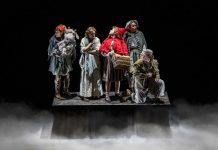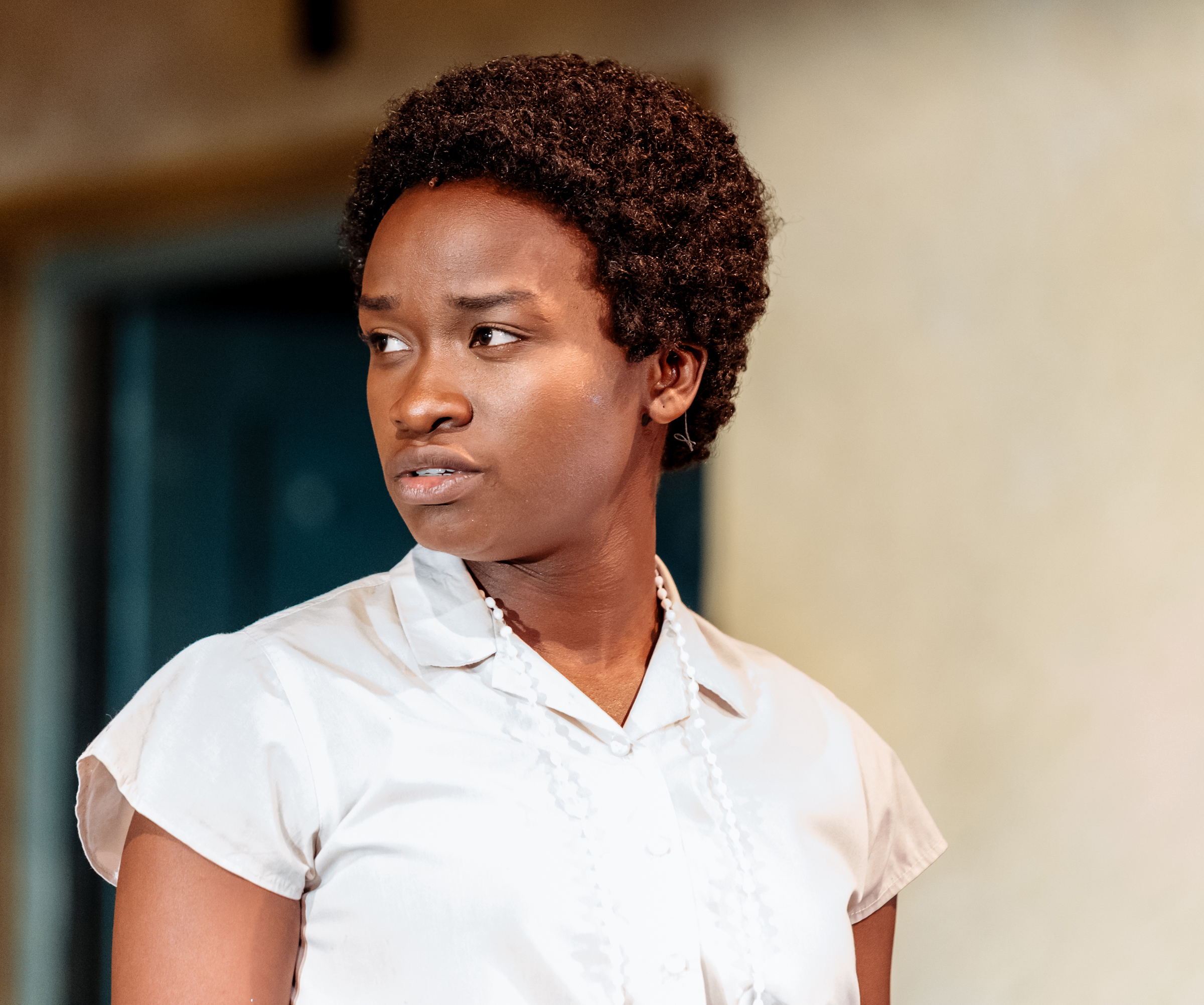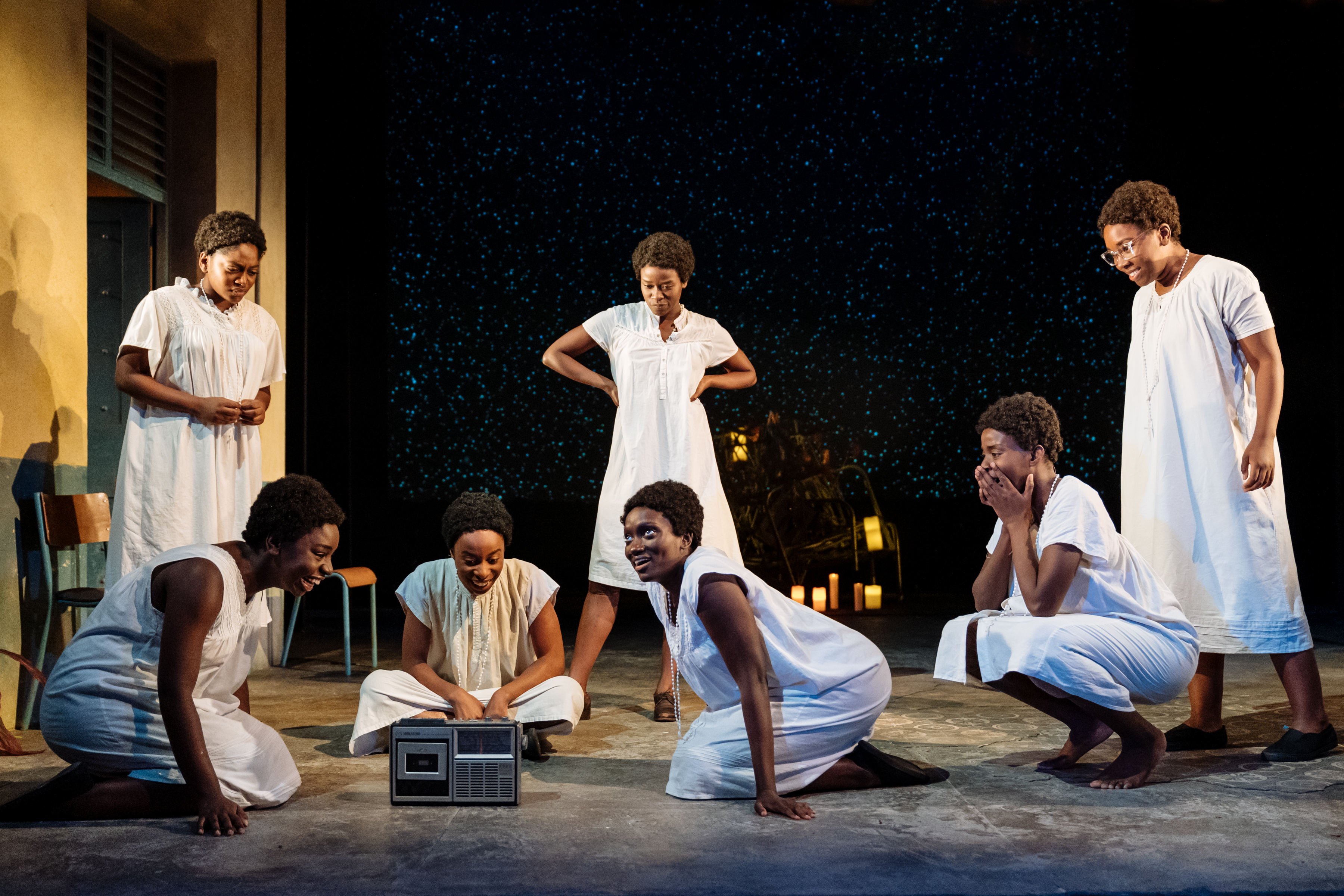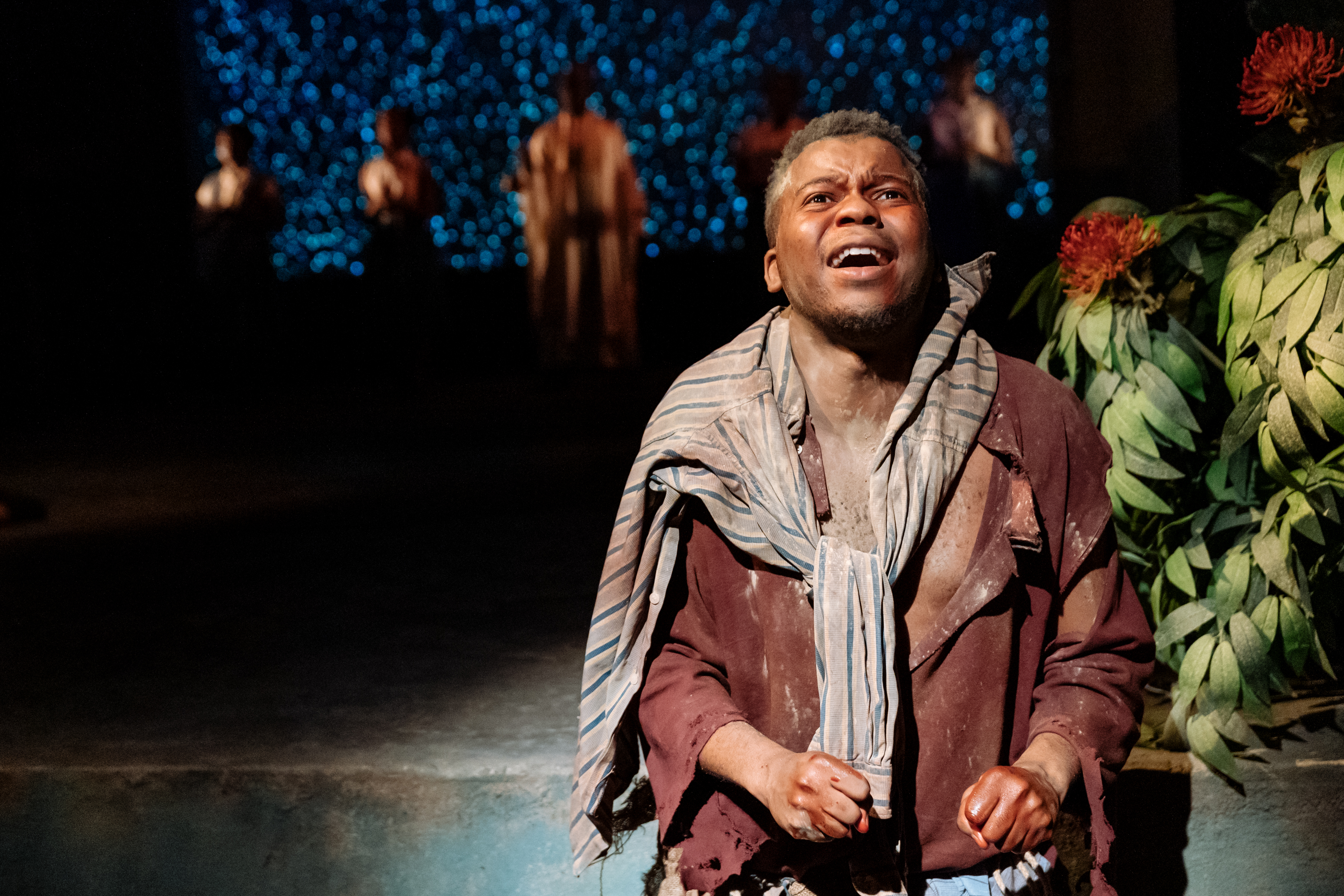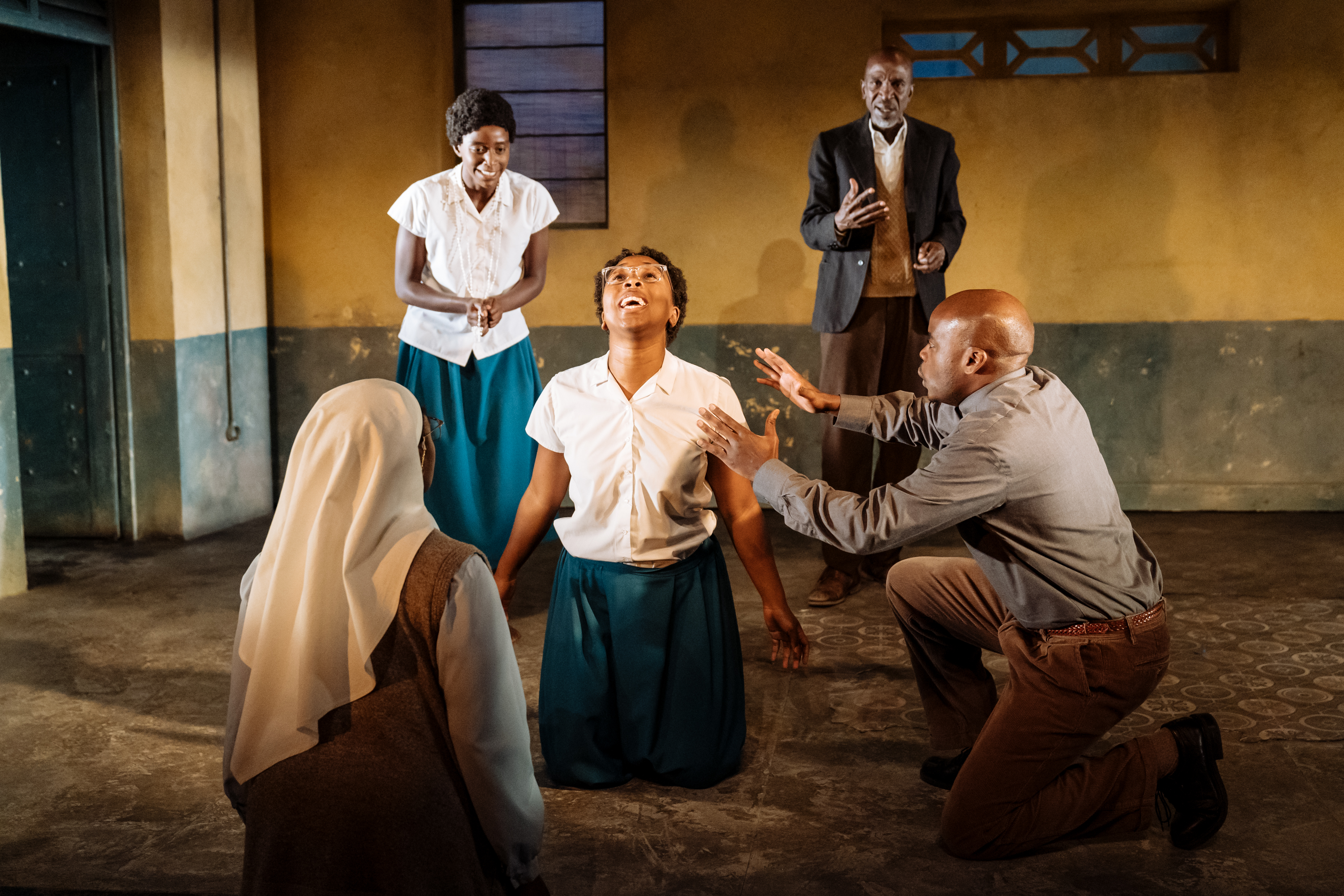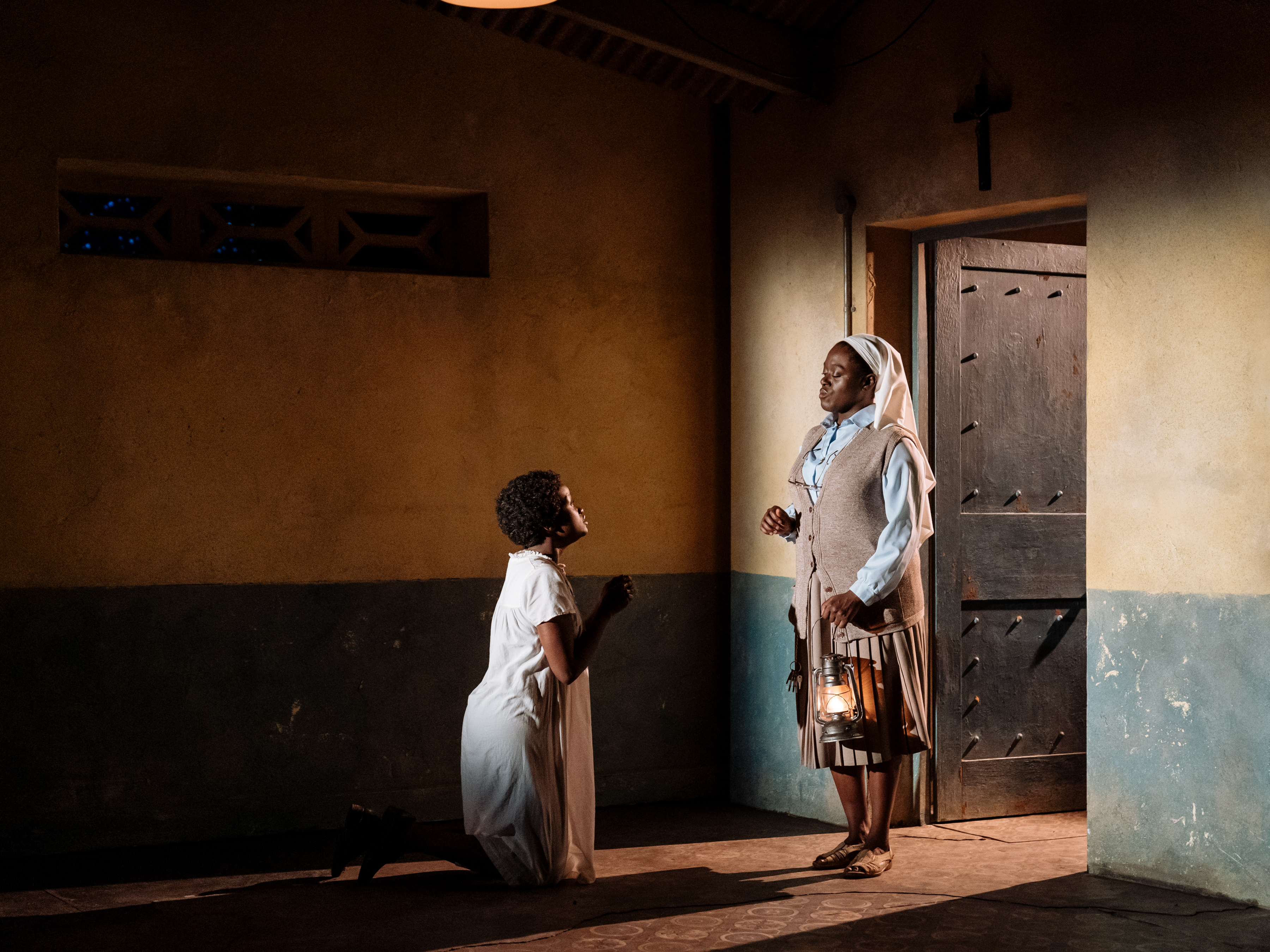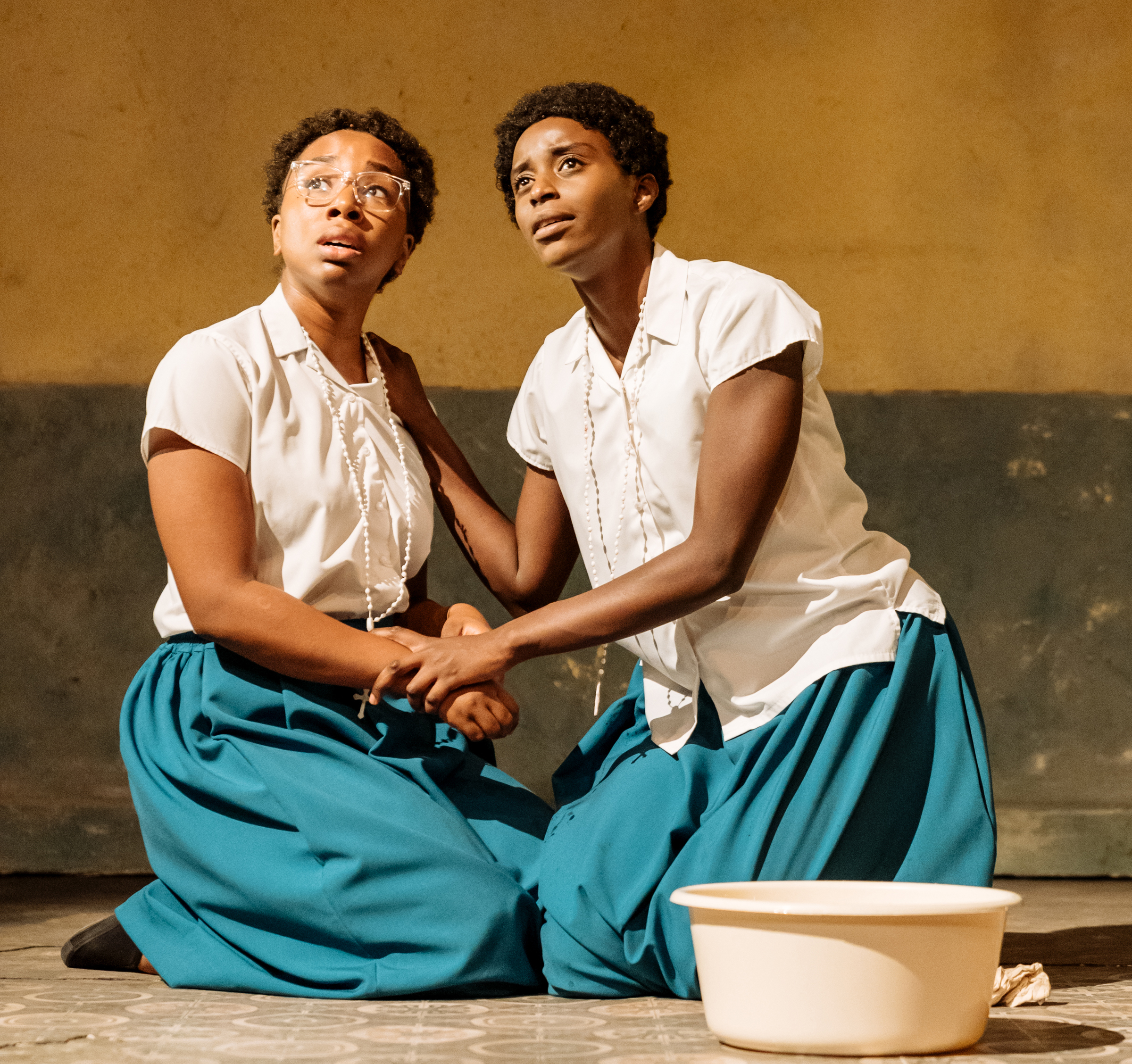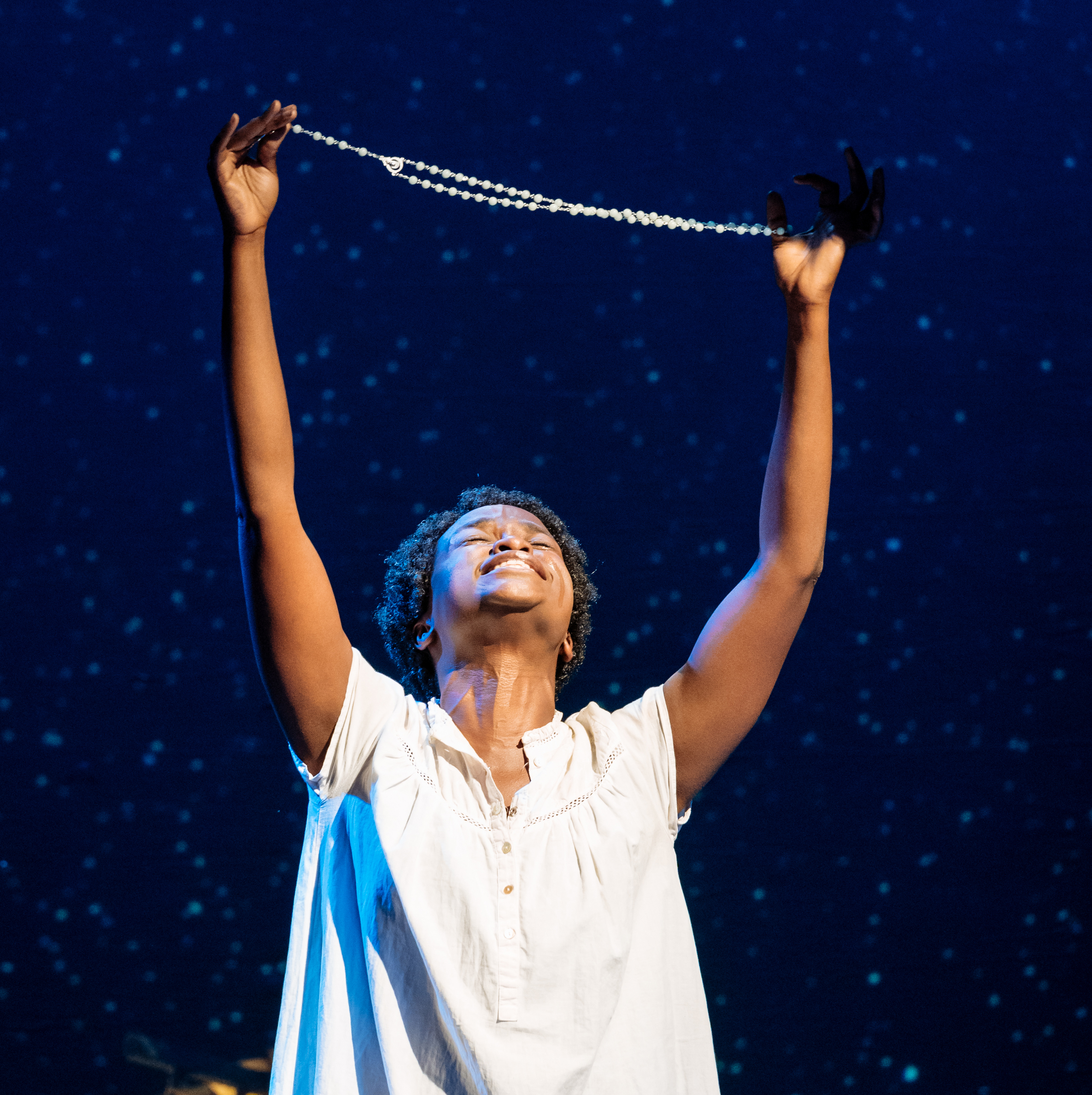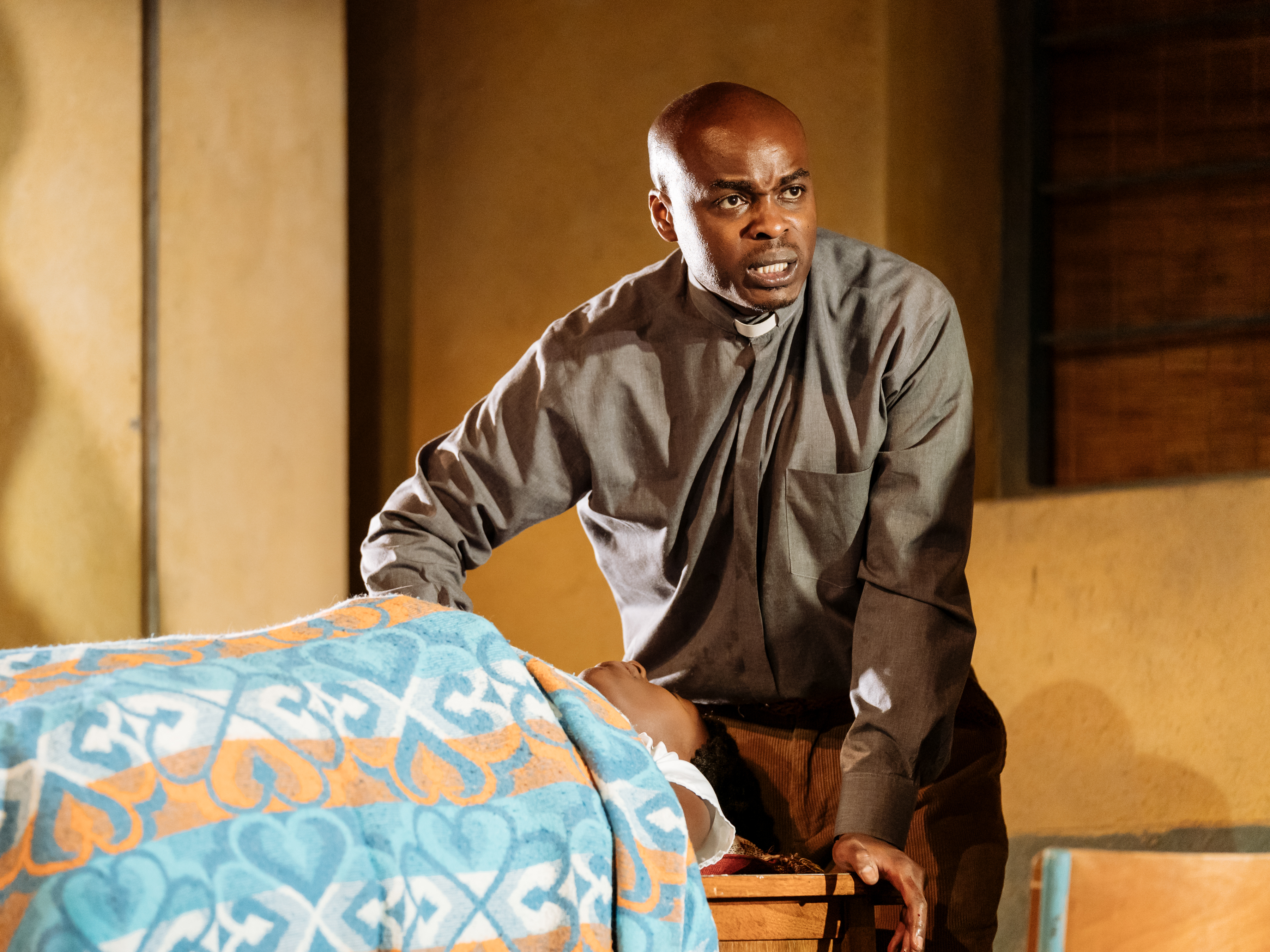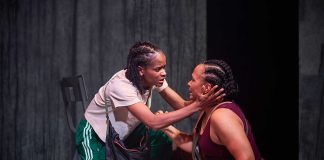Our Lady of Kibeho is a lively entertaining, and at times, laugh-out-loud play about very extraordinary events in an ordinary setting. Three young women are visited by the Virgin Mary with a warning of terrible events to come in Kibeho College, located in a small village in Rwanda.
Our Lady of Kibeho examines a painful chapter of history with great sensitivity and humanity
Katori Hall, who previously won an Olivier Award with The Mountaintop, writes a play that immerses the audience into a small Catholic boarding college in Rwanda. Under James Dacre’s direction, we are immediately drawn into the detailed world of these three girls and their scholastic environment, complete with ethnic prejudices, the imposing influence of the Catholic church and colonialism and notes of excitable youthful hysteria. What makes it particularly poignant is that the audience cannot help but view this through the context of the genocide which takes place a decade later than when the play is set. We see glimpses of the roots of Rwanda’s division in this play. For example, when Alphonsine (Taz Munye) first sees the vision, she is ridiculed and mocked. The girls claiming all Tutsis lie, pointing to the existing dehumanization of this group of people within Rwandan society.
The visions of the Virgin Mary are later seen by two other girls Anathalie (Liyah Summers ) and Marie-Claire (Pepter Lunkuse). The three girls later becoming known as the Trinity.
The play’s finely painted characters are brought to life with stellar performances from an energetic cast. There’s the wearied Father Tuyishime still haunted by previous Tutsi persecution played with depth by Ery Nazaramba, the stern Hutu deputy headmistress Sister Evangeline (Michelle Asante) who enjoys the enforcing the unbending rules of religion and a pragmatic Bishop Gahamanyi (Leo Wringer) a Catholic bishop with a wife, who sees these miracles as ‘good for business’, who doesn’t appear to fully subscribe to this colonial religion. The second act sees the entry of Father Flavia, sent direct from Rome to test the validity of the miracles, who brings with him the prejudices of the western world and a reductive view of “Africa”.
The audience is made fully aware of the impact of the Trinity’s sightings of the Virgin Mary outside of the school. We hear reports of the rumours spreading among the villagers and the arrival of a priest from Rome shows just how far news of the visions of the Trinity have reached. There’s a sense that the world is watching which the audience cannot help but link to the massacre when the world watched and did nothing.
A poignant play with brings beauty to darkness
Our Lady of Kibeho is a powerful play which doesn’t draw any easy conclusions. Instead, it allows the audience a view into Rwandan society, it allows the audience to form their own opinions about the visions and explore the many possible causes of later extraordinary and tragic events that happened to ordinary people in an ordinary place. Maybe Katori Hall wants us to question the causes of the genocide, the role of religion, of colonisers, and the role and responsibility of onlookers.
However, one thing certainly isn’t in question, the play examines a painful chapter of history with great sensitivity and humanity. A poignant play with brings beauty to darkness.










